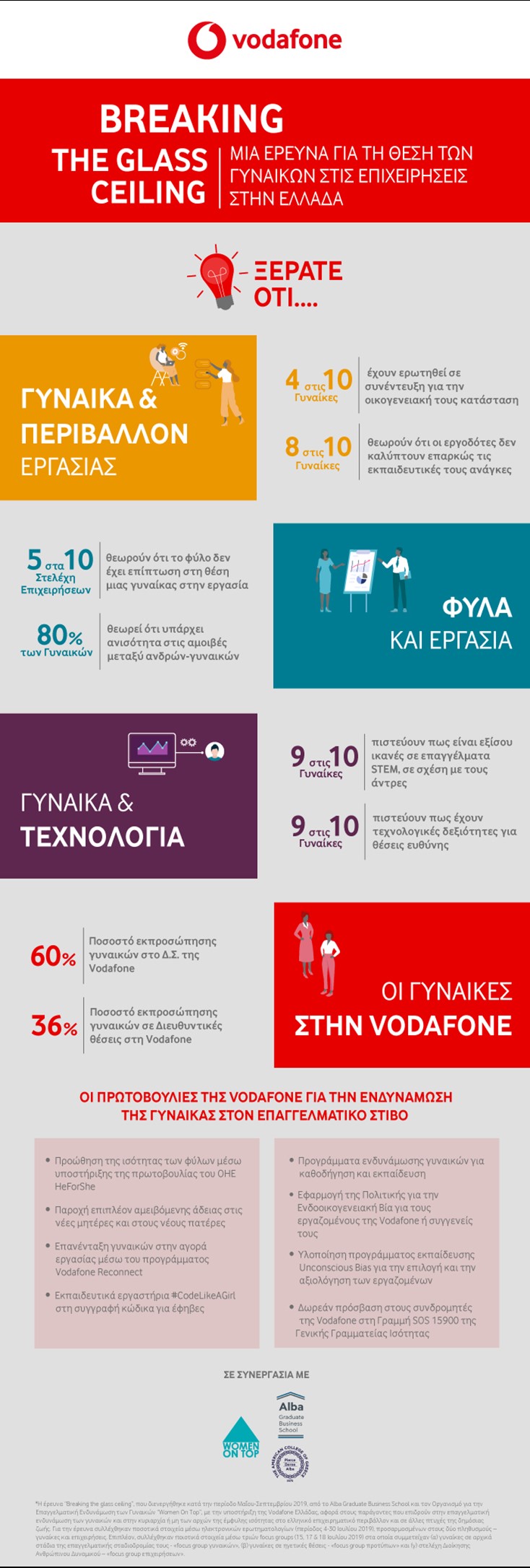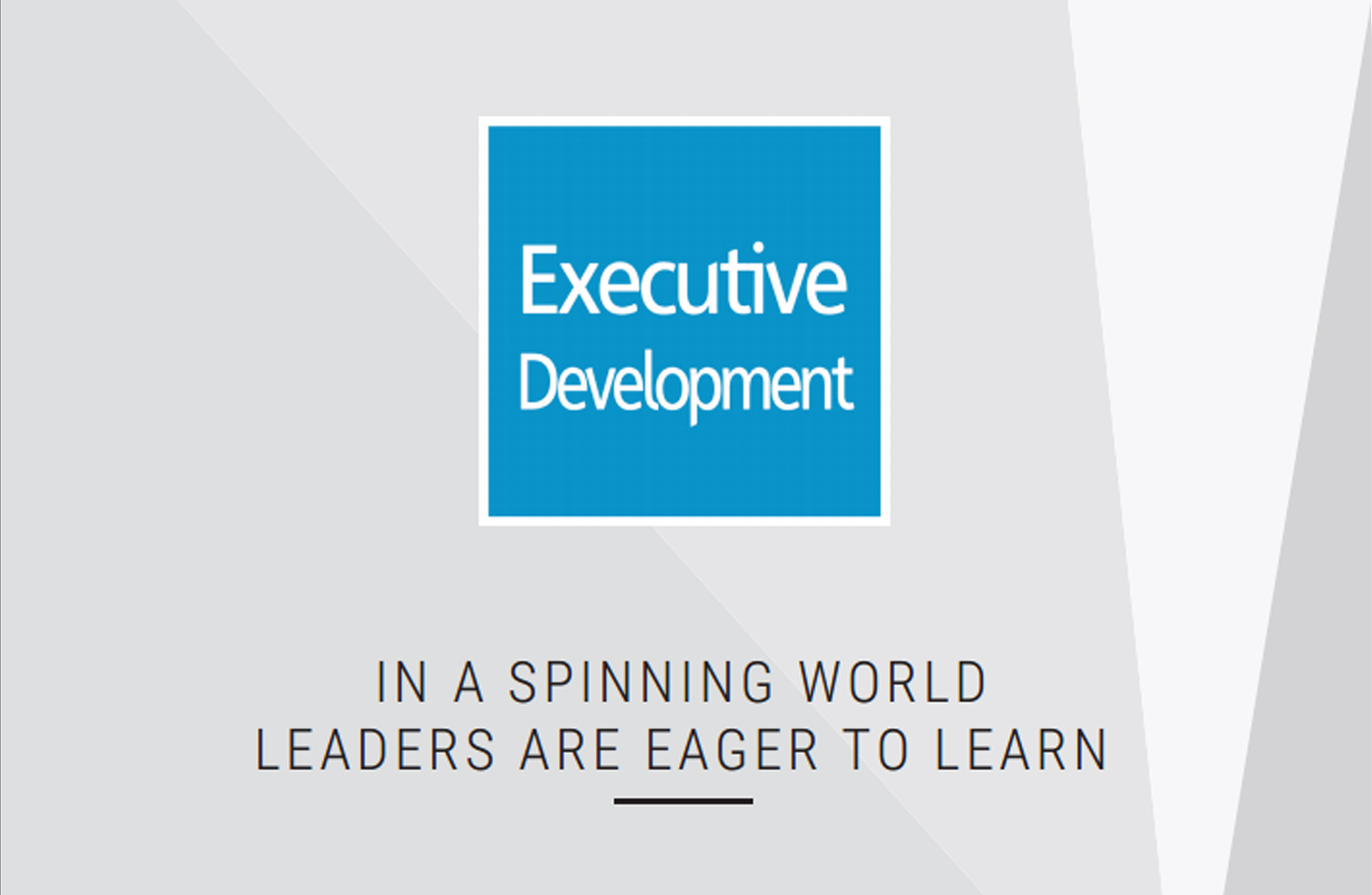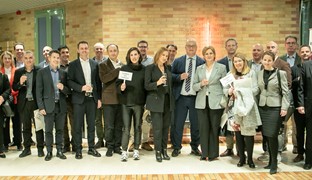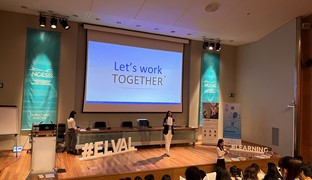Breaking the Glass Ceiling
Vodafone’s research sparks conversation about the position of women in business and improvement potential with Alba’s academic support
67% of women have experienced gender discrimination at work
9 out of 10 respondents agree that women and men are equally capable in STEM professions

In the context of its mission to promote a society of equal opportunities for women, Vodafone Greece has rolled out a research titled “Breaking the Glass Ceiling”. The research, conducted for the first time in Greece, explores the position of women in business and aims to open a dialogue on issues of gender discrimination, as well as to pave the way for improvement practices from the side of businesses and the State alike.
The “Breaking the Glass Ceiling” research project, a Vodafone initiative, was implemented by Alba Graduate Business School, The American College of Greece and the Association for the Professional Empowerment of Women “Women on Top”. It included two phases: a field study based on tailor developed questionnaires and focus groups. Both actions addressed two populations: women and companies.
The findings are telling: gender discrimination exists in a significant portion of the corporate environment in Greece. At the same time, there is a chasm between the degree and the reasons provided by businesses and female employees with respect to the above. However, according to the research, there are areas of improvement and action taking on the part of businesses and organizations in order for them to become agents of change with respect to gender equality at work.
Here are some interesting figures:
On gender discrimination:
- 4 out of 10 women responded that they have been asked during job interviews about their family situation.
- 5 out of 10 respondents believe that the impact is neither positive, nor negative, i.e. that gender has no consequence on a woman’s position at work.
On women’s involvement with technology
- 9 out of 10 women disagree with the statement that they are digitally/technologically qualified to hold responsible or competitive positions
- The business world holds positive views on women’s readiness and ability in roles demanding technological or digital skills or STEM professions. Nevertheless, it is acknowledged that women are discouraged from pursuing such roles.
On skills, education and development
- 8 out of 10 women believe that their employers do not adequately satisfy their educational needs.
- Only 18% of women participants have access to mentoring programs within the company
On gender pay gap
- Nearly 80% of women respondents answered that there is pay inequality between women and men with the same qualifications. This inequality mainly refers to the main wage, as it is thought that discriminations are mitigated when it comes to raises and bonuses.
On violence and harassment at work
- There is some vagueness as to what defines sexual harassment: women become recipients of behaviors and gestures that they cannot always gauge, let alone express annoyance over them.
- Only 3 out of 10 businesses implement education programs to train their employees on violence and sexual harassment prevention.
Overall, and based on the research findings, companies should tackle gender discrimination through practices stemming from an inter-organizational culture that encourages diversity and employee empowerment, as well as transparence and goal-setting with respect to female representation in an organization. Of special importance are also policies and programs, which help maintain work and personal life balance; monitor educational needs; enable women’s access to technology, achieve women empowerment through ongoing education, and more.
To learn more about the findings of the “Breaking the Glass Ceiling” research, the action plan for businesses and the State, as well as Vodafone’s work on women’s professional and social empowerment, visit https://bit.ly/314djqa (in Greek)
.







